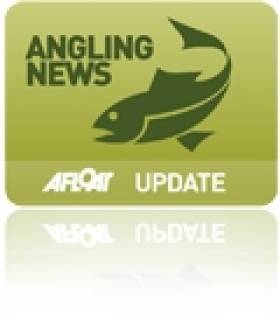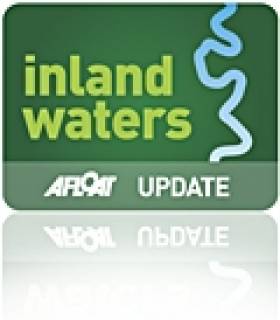Displaying items by tag: Weir
New Archaeological Discoveries in Galway Bay
#GALWAY BAY NEWS - Archaeologists in Galway Bay have unearthed an extensive tidal weir complex at Barna and a late medieval quay on Mutton Island, The Irish Times reports.
The weir, which is estimated to date from the early Christian period, consists of a granite barrier with channels cut through it, designed to control the flow of water in the adjacent lagoon.
Connemara archaeologist Michael Gibbons suggests that the weir implies a considerable fish stock migrating through the area into the Barna river.
The remains of a large Iron Age fort which overlooks the site may also have given its name to the townland of Knocknacarra, which is now a populous suburb of Galway.
Meanwhile, further east at Mutton Island a medieval quay which predates the current lighthouse quay has been found.
The Irish Times has more on the story HERE.
Tribute to River Liffey Salmon Pioneer
#ANGLING - A plaque paying tribute to the late secretary of the Dublin Salmon Anglers' Association has been inveiled at Carton Estate in Co Kildare.
Patrick 'Pat' O'Molloy, who died in November last year, was commemmorated for his pioneering work over the last 35 years in the rehabilitation and restoration of wild salmon stock in the River Liffey, The Irish Times reports.
This involved introducing micro-tagged smolts into the Rye, a tributary of the Liffey upriver of the Carton Estate weir which was impassable from further downstream.
Sadly O'Molloy died before the return of salmon to the Liffey in a year that also saw their return to the Tolka afer more than a century.
Former fisheries CEO Alan McGurdy said at the ceremony: "As you all know, Pat was an angler, a board member, environmentalist, fish farmer and most of all, a friend.
"Today is some recognition to the great man for the tremendous work he did to look after our fish."
20 Metre Weir Boom Installed at Knockvicar
Installing the 20m boom was initiated with assembly of the boom off-site in Rooskey. In early December, the drilling for the piles was facilitated by floating a piling rig to the site on pontoons. Piles are required to hold the Weir Boom in place. The boom was then floated to the site and secured in place. The works cost approximately €55,000.
Installation of the boom improves the amenity at Knockvicar in addition to lock gate replacement and upgraded lockhouse facilities which have been completed by Waterways Ireland in recent years.
The Weir Boom is a preventative measure installed by Waterways Ireland to protect boaters and their craft from being drawn over the weir. Space has been left to allow for the passage of canoeists. There will be no environmental impacts on fish or other wildlife from the installation or operation of the Weir Boom.































































